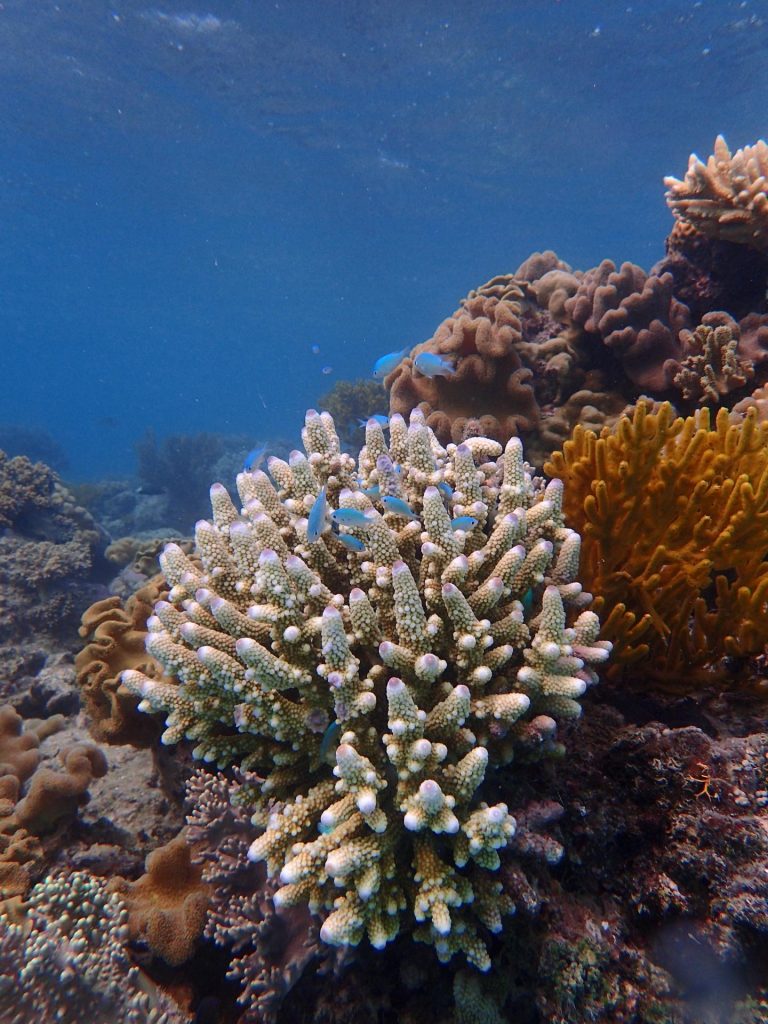UH: Fish Friendships Increase Chances of Survival

“Most humans have experienced social anxiety on some level during their lives. While we typically attribute the long-lasting bonds of social familiarity to complex thinkers like humans, growing evidence indicates that we underestimate the importance of friendship networks in seemingly simple animals, such as fish and its importance for survival in the wild,” according to new research from the University of Hawaiʻi.
To better understand how familiarity impacts social fishes, a group of research scientists studied this idea using schooling coral reef fish.
Lauren Nadler, an assistant professor in Nova Southeastern University and co-authors, including Jacob Johansen, assistant professor at the University of Hawaiʻi at Mānoa’s Hawai‘i Institute of Marine Biology, published their study in Communications Biology.
“We studied how the presence of ‘friends’ versus ‘strangers’ affected how fish responded to a predator threat,” said lead author Nadler. “The presence of ‘strangers’ seemed to distract fish, making them react more slowly and greatly increasing the chance that they would become lunch for a hungry predator when in the wrong social scene.”
Nadler and her colleagues believe that their results come down to trust. In social animals living in the wild, individuals rely on their buddies to alert them if a predator is lurking, but they need to balance the risk of being eaten against the wasted energy of reacting to inaccurate information. So, individuals will alter their sensitivity to social information based on the level of familiarity in the group and hence trust in the information’s accuracy.
“Trust among individuals is critical. This is true for humans as well as many other species, including fishes,” said Johansen. “Our research in fishes shows that when accurate information transfer breaks down, so too does the chance of survival for the individual and the group as a whole.”
Further, the researchers’ results seemed to be driven by a combination of greater vigilance by the first fish to detect the predator, as well as more effective information sharing among neighboring fish.
“Our work shows that readiness to react to a threat depends on who is around you, if you are a fish,” said Paolo Domenici, research director with the Institute of Biophysics at the Italian National Research Council. “If you are in an unfamiliar social environment, this is already something you need to pay attention to. If you are surrounded by familiar individuals, then you will be able to pay attention to any external threat more readily.”
As escape performance underpins survival from predator attacks, these results help us to understand why animals have evolved to prefer associating with “friends” rather than “strangers”, due to the implications for both individual and group-level survival in the wild.
“Friendship networks matter, both for humans and for less evolved taxa like fishes,” said Mark McCormick of the ARC Centre of Excellence for Coral Reef Studies. “The more you can rely on your friends, the easier and more fulfilling your life will be.”
Content courtesy of Nova Southeastern University.










